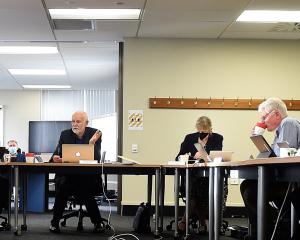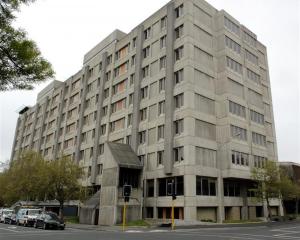
The move is likely a response to the board recently stating it could no longer sustain the level of outsourcing of surgery from Dunedin Hospital to the private sector, which contributed to a cost blow-out in 2011-12 forming part of a $13.2 million deficit.
The inadequacy of Dunedin Hospital's surgery service was identified as a major weakness in a National Health Board (NHB) systems review last year.
However, Joy Farley, who will continue as service manager for the South Island neurosurgery service during her year-long secondment, insisted yesterday, when contacted, her role was still in the "scoping" stage.
Respected for her work running the fledgling South Island neurosurgical service, Ms Farley is seen as capable of working well with clinicians.
Her appointment was welcomed by the head of the senior doctors' union, Ian Powell, who said she possessed people skills lacked by board management.
Ms Farley was approached for the secondment by board chief executive Carole Heatly.
It involved about three days a week in Dunedin.
Based in Wellington, Ms Farley already travels to Dunedin on a regular basis, and said her neurosurgery role fitted well with her new role, which she began last week.
While nominally focused on Otago and Southland, Ms Farley acknowledged the main issue was Dunedin Hospital.
The age and condition of its theatres made them inadequate for modern surgery, she said.
Asked what she could do about long-standing infrastructural problems, she said that she was taking a "high-level view", but she wanted to work with clinicians to improve services.
The NHB report said the age, size and condition of the hospital's main theatre block created unacceptable delays for patients, and frustrations for surgeons.
"Given the significant weaknesses of the facility, processes and infrastructure in the theatres, it is surprising the clinical staff manage so well," the report said.
Since then, the board has approved a proposal to establish a ninth operating theatre, which is set to open next March. A proposal to run night lists of acute surgery was shelved earlier this year because of problems recruiting staff.
Mr Powell, executive director of the Association of Salaried Medical Specialists, said Ms Farley's appointment was good news for the hospital's doctors.
"One of her strengths is relationships - and that is one of the weaknesses of the DHB at the moment."
She had "natural empathy" with senior doctors, who appreciated her "intuitively collaborative" style.
He hoped her role was broader than surgical services.
Ms Heatly, responding by email, said Ms Farley would report directly to her in a role that was mostly strategic, but also involved oversight of some areas of service delivery.
The NHB would pay her salary.
Ms Heatly said Ms Farley had not been brought in as a mediator, saying relationships with clinicians had improved already.
In an email to staff members obtained by the Otago Daily Times, Ms Heatly said Ms Farley would contact clinicians to explain her role, and begin understanding some of the issues from the front line.
In recent months, the board has called in external help for its finance department, after incorrect financial forecasting, and Dunedin Hospital's emergency department, to resolve relationship problems with doctors.











